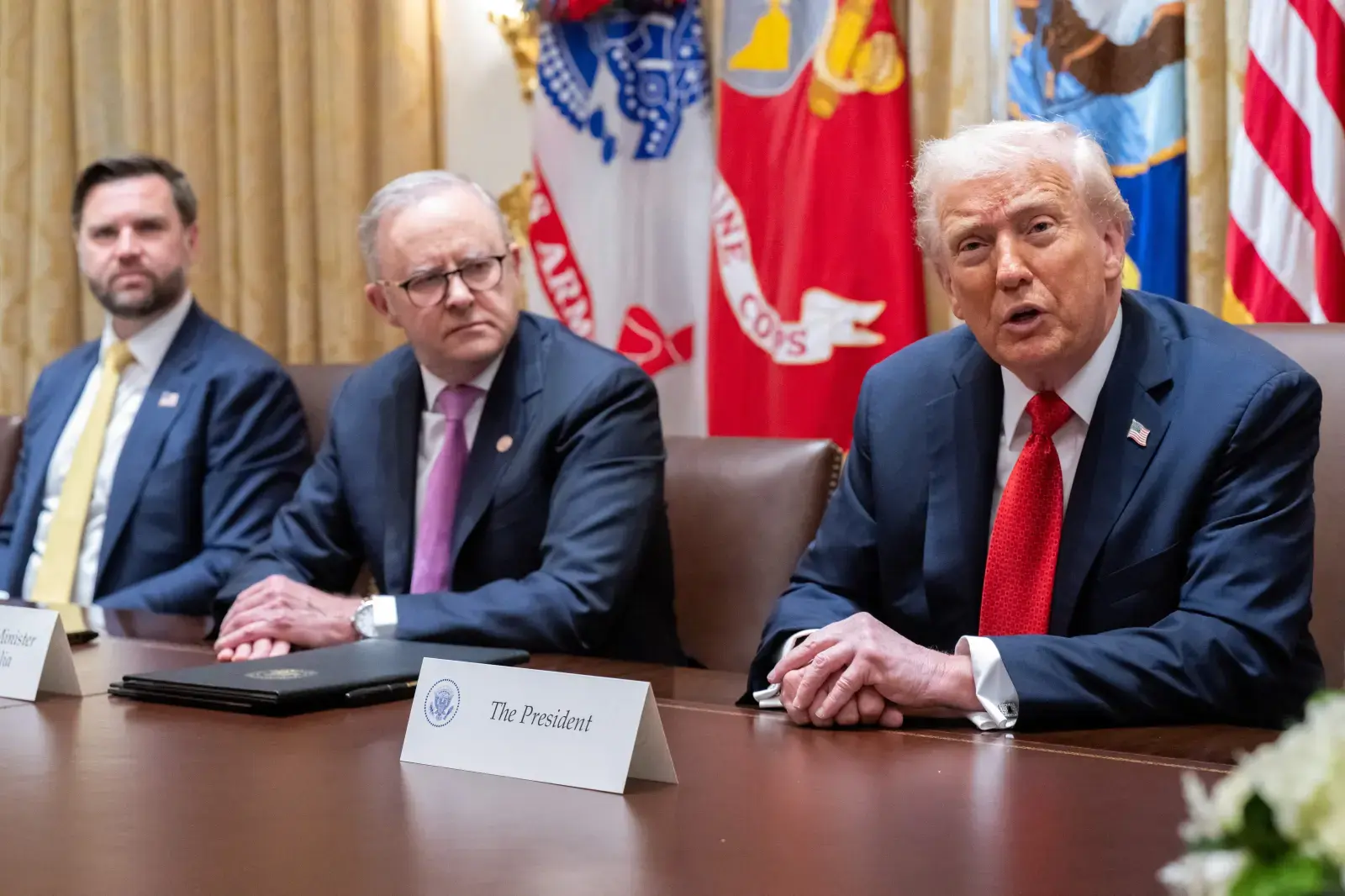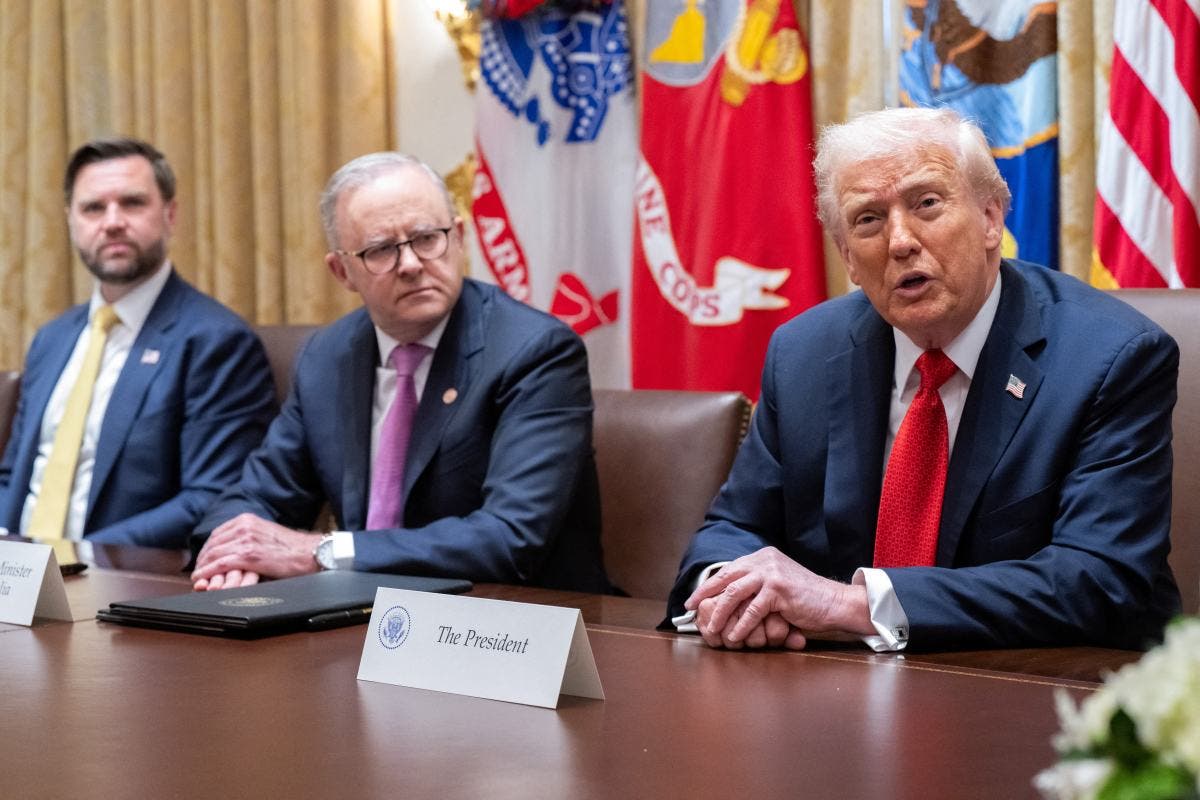President Donald Trump said Monday that Ukraine “could still win” its war with Russia but expressed doubt that it will, calling the conflict difficult because of the animosity between the countries’ leaders.
“I think we’ll get there. But it’s turned out to be nasty, because you have two leaders that truly hate each other,” Trump told reporters at the White House Monday, adding that their mutual hostility makes reaching peace “a little bit difficult.”
Why It Matters
Just weeks earlier, after meeting with Zelensky in New York on the sidelines of the U.N. General Assembly, Trump said he believed Ukraine could reclaim all the territory it has lost to Russia since the invasion began in February 2022. The remarks represented a notable reversal for Trump, who throughout his 2024 campaign and much of the early part of his presidency argued that Kyiv would need to cede territory to secure peace with Moscow.
Asked whether Ukraine could still prevail, he said, “They could still win it. I don’t think they will, but they could still win it. I never said they would win it. I said they could win. Anything could happen. You know, war is a very strange thing.”
 What To Know
What To Know
Trump also said he had urged Russia to stop attacking Ukrainian civilians and dismissed a reporter’s question about providing Ukraine with more aid, calling the situation “more complicated than that.” He said his team is “in the process of trying to make a deal” and warned that if talks fail, “a lot of people are going to be paying a big price.”
Trump on Friday urged Ukraine and Russia to “stop where they are” and bring an end to their war, following a lengthy White House meeting with Ukrainian President Volodymyr Zelensky — marking yet another shift in his stance on the conflict.
Also Monday, Russia said its position “remains unchanged” as it responded to Trump‘s latest call to freeze the war in Ukraine along the current frontlines.
The Kremlin has previously rejected calls for a ceasefire, saying it thinks Ukraine would use a pause in the fighting to rearm and regroup, and so would rather go straight to negotiating a full peace deal instead. It has also demanded that Ukraine cede more of its territory to Russia than Moscow currently controls.
Q: “Just a few weeks ago at UNGA, you said that Ukraine could possibly win the war–“
President Trump: “Well, they could. They could still win it, I don’t think they will, but they could still win it.” pic.twitter.com/DgoahkuV9n
— CSPAN (@cspan) October 20, 2025
“This topic has been raised repeatedly, with various nuances, during Russian-American contacts, and the Russian side has always given the same response, which is well known: Russia’s position remains unchanged,” said Russian presidential spokesperson Dmitry Peskov at a press briefing on Monday, Interfax reported.
U.S. Secretary of State Marco Rubio and Russian Foreign Minister Sergey Lavrov spoke by phone Monday to discuss next steps toward ending the Russia-Ukraine war.
Both governments released similarly vague readouts, saying the call built on understandings reached during Trump and Putin’s Oct. 16 conversation.
Trump said afterward that he expects to meet with Putin in the coming weeks, and that Rubio will host a high-level Russian delegation—presumably led by Lavrov—sometime this week. Neither side, however, provided details about when or where those meetings might take place.
The Russian Foreign Ministry called the Rubio-Lavrov exchange “constructive,” while the U.S. statement said Rubio “emphasized the importance of upcoming engagements as an opportunity for Moscow and Washington to collaborate on advancing a durable resolution” to the conflict.
Why Did Russia Invade Ukraine?
Russia invaded Ukraine on Feb. 24, 2022, in what Putin described as a “special military operation” to demilitarize and “de-Nazify” the country — claims widely dismissed by Western governments as baseless pretexts for aggression. The Kremlin also cited NATO’s expansion toward Russia’s borders and Ukraine’s growing ties with the West as threats to its security, arguing that Moscow was acting defensively to preserve its sphere of influence.
In reality, the invasion followed years of rising tensions after Russia’s 2014 annexation of Crimea and its support for separatist forces in eastern Ukraine. Analysts say Putin’s broader aim was to reassert control over Ukraine and prevent it from integrating with the European Union and NATO. The war has since become Europe’s deadliest conflict in decades, reshaping global alliances and leaving tens of thousands dead on both sides.
Updates: 10/20/25, 1:08 p.m. ET: This article was updated with new information and remarks.
Updates: 10/20/25, 2:57 p.m. ET: This article was updated with new information and remarks.
Updates: 10/20/25, 6:01 p.m. ET: This article was updated with new information and remarks.

